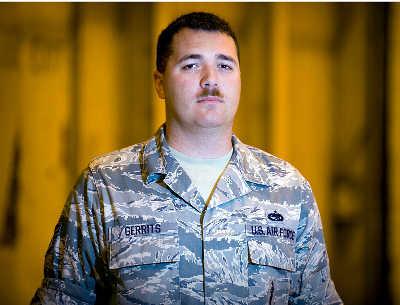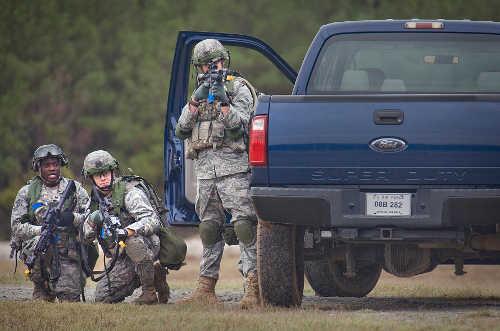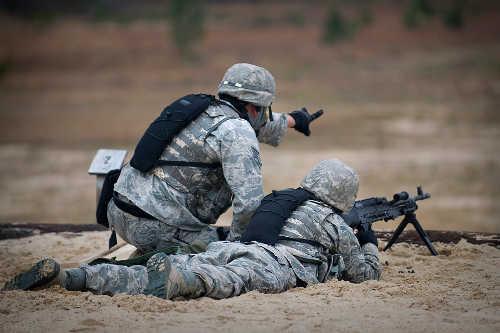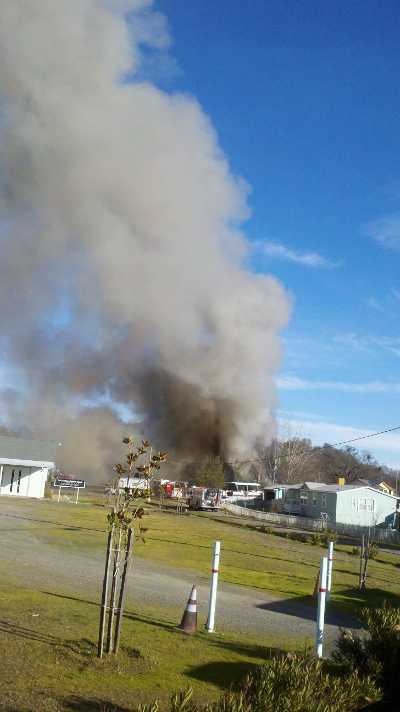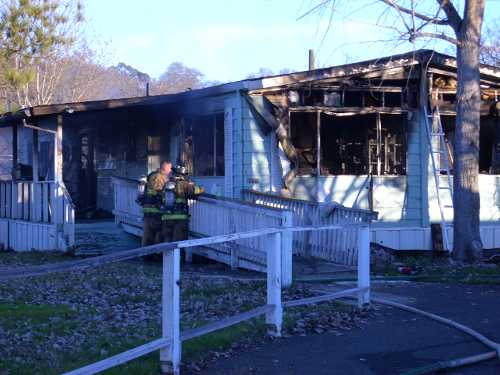LAKEPORT, Calif. – A judge weighing whether or not to impose temporary sex offender registration requirements on an actor and model who exposed himself in public has set a Feb. 10 hearing for testimony to be submitted by a doctor who has worked with the man.
Justin Force Lazard, 44, flew out from Florida to appear in Judge Richard Martin's Department 2 courtroom on Monday morning, the same time as his trial had been set to start.
On Friday District Attorney Don Anderson and Lazard's defense attorney Paul Swanson appeared before Martin to present the outline of a plea deal they had reached in Lazard's case, which stems from a July 2006 incident in Library Park, as Lake County News has reported.
Lakeport Police officers arrested Lazard after they confronted him while he was exposing his genitals and masturbating near the children's playground in Library Park, where a juvenile and several other witnessed the incident.
That incident followed by roughly three weeks Lazard's arrest in Monterey County in which he was found by police to be exposing his genitals in the drive-through of a Soledad mall.
Regarding his Lake County case, in exchange for a guilty plea to misdemeanor lewd conduct in public, the District Attorney's Office agreed to drop two additional misdemeanor charges of annoying or molesting a child under age 18 and indecent exposure, the latter which would have required sex offender registration.
The additional terms of the deal include three years' probation, 30 days in county jail with 30 days credit for time served, 100 hours community service, three years' psychiatric counseling with quarterly updates on his progress and a $7,500 payment to Lake Family Resource Center.
When Martin arrived in court Monday and called Lazard's case, Swanson said he was waiting for Lazard to come in. When Lazard arrived, Martin scolded him for being 10 minutes late, to which Lazard responded that he had been waiting for his case to be called.
While a lewd conduct conviction does not require sex offender registration, the judge may impose it at his discretion.
At the Friday court appearance, Martin had stated that he was considering the registration requirement, which Swanson argued wasn't in the agreement. Both Swanson and Anderson argued against registration, stating that Lazard – in their view – had no proclivities toward children that would make it a necessity.
While Martin considered that Friday, on Monday he wanted to revisit the issue.
“The court's given this thought all weekend,” he said.
Based on Anderson's statements and his own training, Martin believed Lazard's cases were the result of a transitory life issue, noting there had been no recurrences in the nearly five years since the alleged incidents occurred.
However, Martin said that for the purposes of public safety he wanted to impose some form of registration, to which Lazard had a mild outburst that Swanson attempted to quiet.
Martin said he didn't want to give a lifelong registration mandate, as he didn't think that would be fair. But he felt a temporary requirement, that Lazard later could petition the court to lift, was the right thing to do.
“I'm not comfortable with where we're at right now,” Martin said.
However, Martin said that if, at the end of Lazard's three years of probation, he didn't get into any more trouble, “then I would be comfy with discharging the registration.”
While Martin said he had assurances from both the prosecution and defense about Lazard's progress, he didn't have the advantage of a psychologist or psychiatrist to give testimony to the issue.
“I don't want it on my conscience if something happens,” Martin said.
Throughout the hearing Swanson had to continue to quiet Lazard, who kept trying to interject. Swanson said Lazard had flown in from Miami with the understanding that there was going to be the plea deal.
Swanson wanted to offer up a statement from an East Coast psychiatrist which he had also provided to the District Attorney's Office. Martin said that was OK as long as the district attorney stipulated to it.
Martin added that he would be much more comfortable if the doctor appeared in court so he could look him in the eye.
Swanson looked through his papers and was unable to find the document, and said he may have to ask Anderson for his copy. He then went over to where Anderson sat at the prosecution table and began looking at his papers. Martin told them to take a short recess and when they found the document they could reconvene.
When the one-page document was located it was given to Martin in chambers so he could read it over.
About a half hour later, shortly before 9 a.m., court was back in session.
Martin, having read the letter, noted that it stated Lazard had made significant progress, “but the issues that are in here give the court further concern.”
The letter made a statement about Lazard's problems resulting from a psychotic episode due to drug use.
Martin said that opened up the possibility for a recurrence of the behavior. “I think there is a potential and even the doctor is somewhat equivocal,” he said, adding that Lazard is still dealing with those issues.
Swanson, noting he would have had an updated report if he knew there were going to be concerns, said the letter from the doctor, written in December 2008, “reflects what had gone on with Justin Lazard prior to that time,” adding that Lazard had struggled with cocaine use and, as a result, was in a state of psychosis in the summer of 2006.
However, Lazard has no proclivity for inappropriate behavior toward children, said Swanson, who talked during the break via phone to the doctor, who indicated he would fly out to give testimony.
Swanson offered to have Lazard consult with the doctor once a month for the three years of his probation in addition to the quarterly medical reports that will be required submitted to the court.
“Mr. Lazard, I feel, has made such strides,” said Swanson.
At that point Lazard broke in, asserting that he had no impulses toward children. “It is nothing I need to suppress.”
He said he doesn't want to hurt children – “as God is my witness, may he strike me dead in this court.”
Martin cautioned Lazard that what he said could be used against him.
Swanson said that as a result of the Jan. 28 hearing, at which time the court indicated being agreeable to the plea deal terms, he went to Lake Family Resource Center and presented a check for $7,500 on Lazard's behalf. He submitted a copy of the check and receipt information to the court, which made it an exhibit.
Swanson said “it does cause a bit of consternation” for Lazard to have to fly in from Miami with 72 hours' notice – and after having paid the money – to find out there may be additional terms imposed.
He said the doctor indicated he would be willing to fly out and appear in court on Thursday, Feb. 10. Martin agreed to set a hearing for that day at 3:30 p.m.
Martin said that he understood the concern about the fact that Lazard paid the money. However, he added, “I did announce my feelings about this and the concerns I had, and I gave it a lot of thought over the weekend and I just was bothered because it was more than one offense.”
He said he didn't have proof that Lazard had a “transitory problem,” and noted the concerns the letter raised for him, specifically, that Lazard remains at risk for psychosis if drug use recurs.
“The court is not trying to fashion some onerous punishment for the defendant, although punishment is part of any sentence,” Martin said.
Martin said a major factor in such cases is the protection of children. He said he would be more comfortable if there is assurance of more treatment and no more abuses by Lazard. “The court wants some evidence to do that.”
He added, “I don't feel like I'm adequately doing my job with the amount of information I have.”
Swanson argued that under Penal Code 290, the section that covers sex offender registration, those convicted of such offenses only are required to register if they're residing in California, or attending school or working in the state. He pointed out that Lazard lives in New York and his wife and child are in Florida, where the child is receiving medical treatment.
Swanson offered as an alternative that there could be an additional stipulation that if Lazard ever does reside, attend school or work in California that he would have to register at that time. He told the court that he had not, however, discussed that option with his client.
Martin asked if Lazard was living in California at the time of the Lakeport incident. Swanson said no, that Lazard was living in New York but had visited California to purchase a property in Desert Hot Springs. He said the property currently is rented.
Anderson said if there was a desire to have additional, more restrictive terms of probation like Swanson suggested, he would support it.
In looking at the case, Anderson said it was his understanding that Lazard would be living in New York and not be coming back to California. “That was part of my consideration in making this offer.”
Martin said he still wanted to hear from the doctor, and asked if Swanson was suggesting that the court didn't have jurisdiction to impose registration. Swanson said that's how it appeared from the face of the statute.
Martin said that while they've had issues with people who are convicted in other states being required to register in California, “we haven't had the reverse.”
Martin asked for both Anderson and Swanson to submit points and authorities on the matter by Monday, Feb. 7, in advance of the hearing.
“If you are correct on no registration then we have a different ball game,” Martin told Swanson.
Swanson asked if the judge required Lazard be present for the Feb. 10 hearing. Martin said yes, indicating he wanted Lazard to be present when he gave him the probation terms and had him sign and accept them.
He said he wasn't sure how the case got so old, but said it should have been handled more quickly and he didn't want to delay it any further.
Part of the delay in the case has stemmed from Lazard's own actions. In May 2009 he was scheduled for trial but failed to appear, which led to a bench warrant being issued for his arrest.
He was arrested last year while returning to the US from a trip to the Caribbean, following the Lakeport Police Department's stepped up effort to bring him back for trial, including issuing a statement identifying him as the agency's most wanted person.
While the court is set to examine whether or not it has jurisdiction to cause Lazard to register according to California laws, New York state has its own sex offender registry, which oversees registrants – including those who move into the state from other areas and those who leave New York.
E-mail Elizabeth Larson at This email address is being protected from spambots. You need JavaScript enabled to view it. . Follow Lake County News on Twitter at http://twitter.com/LakeCoNews , on Facebook at http://www.facebook.com/pages/Lake-County-News/143156775604?ref=mf and on YouTube at http://www.youtube.com/user/LakeCoNews .


